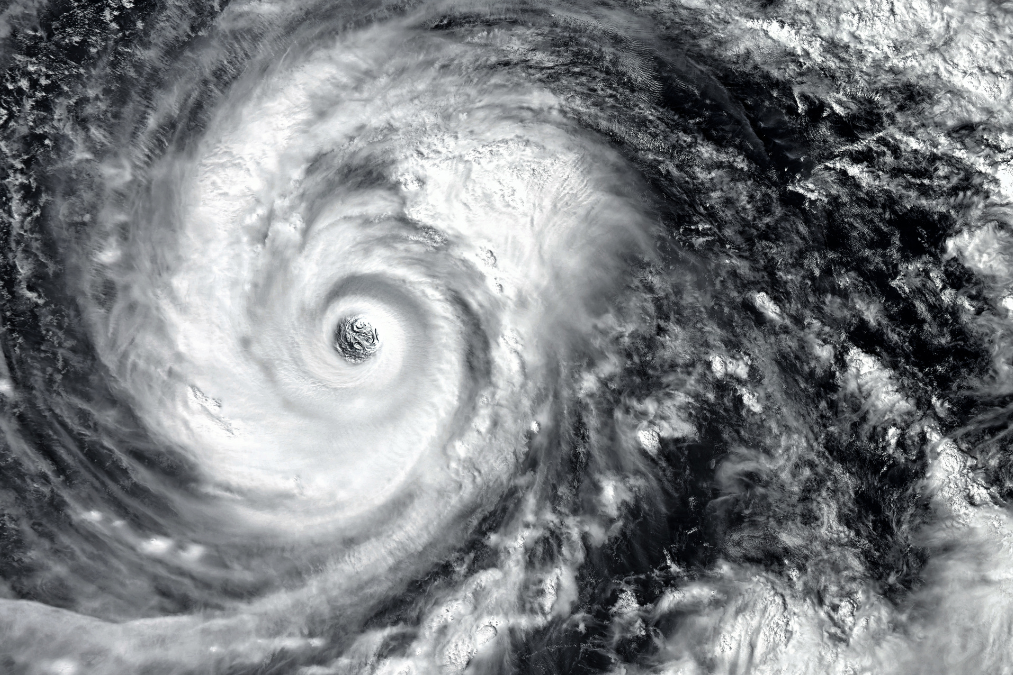Need to Know Info: Florida’s Hurricane Season

Florida is a tropical paradise. Those of us lucky enough to live in this paradise know it’s called the Sunshine State for a reason. But that doesn’t mean we’re immune to nature’s threats. Tropical storms and hurricanes pose severe challenges for Floridians, especially if you’re a property owner. So, it’s essential to plan ahead and mitigate the risks posed by these treacherous weather conditions.
When to Expect Florida Hurricanes
The first step in preparing for a hurricane is knowing when to expect one. It may come as a surprise to learn that Florida has experienced hurricanes ten months out of the year, only excluding January and March. So, if you’re wondering, “When does hurricane season start in Florida?” or “When does hurricane season end in Florida?” – suffice it to say there’s always a chance a storm could hit. Still, there are certain months more commonly recognized as Florida’s hurricane season.
When does hurricane season start in Florida?
Florida is part of the Atlantic hurricane season, which means storms generally become more likely beginning June 1.
When does hurricane season end in Florida?
The end of the Atlantic hurricane season is considered November 30th.
On average, the six-month timeframe for Florida’s hurricane season will yield 14 named storms. However, according to the NOAA, 2023 far surpassed that average, reaching 20 named storms. This leaves 2023 with the fourth-highest storm count since 1950. So, what does that mean for 2024? Well, with the high ocean temps and the likelihood of El Niño fading to El Niña, Floridians can expect another very active Florida hurricane season. In fact, early predictions indicate the worst of it may come during peak season.
When is peak hurricane season in Florida?
The peak of Florida’s hurricane season is generally mid-August through November. And 2024 is likely to see higher than average activity this peak season since early predictions by NOAA indicate a 74% chance for La Niña to go into effect during the second half of Florida’s hurricane season. Given La Niña’s lower wind shear, it offers more optimal conditions for hurricanes. This, coupled with warmer ocean temperatures, makes the risk of tropical cyclones even greater.
Protection from Hurricanes
So, get ahead of the risks posed by the upcoming Florida hurricane season and protect your property from the hazards of a hurricane. When harsh winds flare up and power grids fail, you can rest easy with a backup power source to keep you safe and comfortable.
Bo’s Electric, a premier generator supplier, can help you select the best standby generator system for your property’s needs. So, in the event of a power outage, electricity can be seamlessly restored to your property and keep essential power elements running.
The Value of a Standby Generator
Storms can be unpredictable. So, lost power could last minutes, hours, or even days. By having a standby generator, you can depend on an uninterrupted power source that offers the comforts of AC/heat and the safety of operational refrigerators, freezers, and even medical equipment. These continued power sources are not just a convenience; they’re safety essentials.
A standby generator isn’t just for home use. Businesses also benefit from a standby generator to help maintain ongoing business operations. An investment now can mitigate significant financial loss later.
Generator Maintenance
Even if you already have a standby generator installed, performing proper maintenance is essential. An annual inspection by an expert is ideal. The technician will check the valve, battery condition, and charge level during an inspection. Depending on how long you’ve had the generator and how often it’s been used, additional maintenance may include an oil change, filter replacement, fuel system leak test, water intrusion inspection, valve clearance, and sediment trap.
In between inspections, owners should test their generator periodically. Before a storm approaches, check fuel levels and quality. Be sure to always keep the generator clean, clear of any nearby debris, and in a location with proper ventilation.
Generator Use
When the power goes out, you won’t be searching for a flashlight. Thanks to your standby generator, power will be restored seamlessly for essential elements. Just make sure to follow proper safety practices when using the generator. Each day, you need to clear dirt and debris, check the fuel lines, and assess the oil lines. You will need to add fuel daily and replace the oil and oil filter after 200 hours of use. These proper care techniques will ensure an optimal working condition for your generator.
Your Protection Partner
When tropical storms flare up, there’s a real chance that your property could lose power. But there’s no need to gamble your safety. No matter where you are in your hurricane preparation process, you canbe ready for Florida’s hurricane season by turning to Bo’s Electric for support to select, install, check, or maintain your backup power needs.




